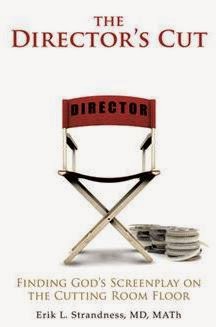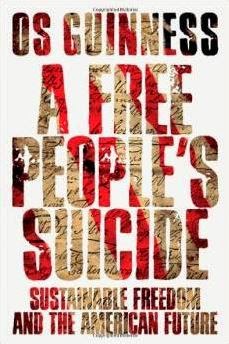Before I take my customary break from blogging, I have some great summer reading to recommend.
First: Dr. Erik Strandness’s delightful new book, The Director's Cut: Finding God's Screenplay on the Cutting Room Floor.
 |
| You don't find many medical doctors with degrees in theology. |
After practicing neonatal medicine for twenty years, Dr. Strandness went back to school to study theology, and he obtained a master’s degree in that field. This turn in his journey, and the book that ensued, was born out of his loss for words when someone asked him why he was a Believer.
Once in a while, someone manages to put ageless Truth into such a fresh package that it cries out, "Read on!" That’s just the way I felt while reading The Director's Cut. It's not just Dr. Strandness’s engaging word images that make this book such a great read, but the profound Truths communicated in such a creative and thoroughly enjoyable manner. It's a fun read!
I got to know Erik when he was part of the Colson Centurions Affiliate Program in Seattle, and I can tell you he is "the real deal." Today, Erik is teaching science, religion and history at a Classical Christian school in Spokane, Washington. To learn more about Erik's move from medicine to theology, click here. To learn more about why Erik wrote the book, what it is about, and how you can obtain a copy, click here.
Next, I recommend Henry's Glory: A Story for Discovering Lasting Significance in Your Daily Work, by John Elton Pletcher.
John Pletcher is a pastor who gets theology of work. His book is unique in that it deals with this topic in the form of fictional story. Jesus used parables to communicate Truth to the masses, and great Christian writers of the past, such as John Milton and C.S. Lewis, used this technique with success.
Pletcher follows the story-telling tradition by skillfully weaving Truth into a contemporary narrative about Zach, Maggie, and a classic old pickup truck named "Henry." But don't let the story-form fool you. His treatment of theology of work is not superficial, by any stretch of the imagination. Pastor Pletcher engages with big issues, including eschatology and platonic dualism, and does so with excellence, in a winsome way!
To read a review of Henry's Glory that appeared in The Marketplace magazine, click here. To obtain a copy of John's book, click here.
Happy reading!
I'll see you in September.
 |
| Henry's Glory makes a great family read, suitable for ages 9 to 99. |







